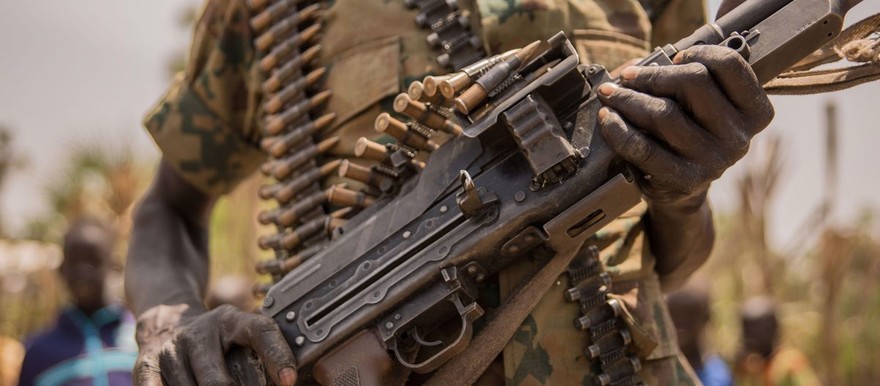The Sentry, in a new report, singled out the Sudan People’s Liberation Movement in Opposition (SPLM-IO) and National Salvation Front (NAS) as being involved in mining, taxing, and trading in gold to finance their rebel activities in South Sudan.
The Sentry, a group co-founded by actor George Clooney and activist John Prendergast, released an advisory yesterday titled ‘Understanding Money Laundering Risks in the Conflict Gold Trade from East and Central Africa to Dubai and Onward’.
“This advisory highlights the money laundering risks stemming from the flow of conflict gold from four sub-Saharan African countries affected by armed conflict and corruption—the Democratic Republic of Congo (DRC), South Sudan, Sudan, and Central African Republic (CAR)—with a focus on risks in Dubai, United Arab Emirates (UAE), the destination point for an estimated 95% of gold from East and Central Africa. Because gold is easily smuggled in high volumes, it is frequently used as a money-laundering vehicle by armed groups, criminal networks, and corrupt actors, who can then mask its origins by melting it together with other gold,” the advisory read in part.
According to the Sentry, in South Sudan, armed groups “exploit, tax, and trade gold.”
“Two of the largest armed opposition groups in South Sudan, the Sudan People’s Liberation Movement/Army in Opposition (SPLM/A-IO) and the National Salvation Front (NAS), confirmed to the UN that they mine gold for themselves and tax civilians partaking in gold mining, using the proceeds to finance their efforts against the South Sudanese government,” The Sentry said.
The advisory pointed out that gold from South Sudan is smuggled to Uganda and Kenya before reaching its final destination, Dubai in the United Arab Emirates.
“As investigations by The Sentry and others have shown, artisanally mined gold from the DRC, South Sudan, and CAR is mainly smuggled or exported to one of six neighboring countries—Uganda, Rwanda, Cameroon, Kenya, Chad, or Burundi—before being exported to Dubai. Sudan mainly exports directly to the UAE. In the UAE, weak oversight and controls allow for the trade-in conflict and high-risk gold,” The advisory said.
The Sentry’s advisory highlights four key risk factors in the UAE: weak customs controls, inadequate oversight of the gold souks, the continued allowance of large cash transactions, and inadequate oversight of refiners.
The advisory lays out money laundering red flags specific to the gold supply chain from the countries listed above, including predicate crime indicators, product differentiation, and trading and company behavior.
“Understanding the trade and its associated predicate offenses and financial crime risks, particularly in the UAE, will help financial institutions, governments, and others in the gold trade to more effectively disrupt the illicit flows fueling violence and corruption in East and Central Africa,” the advisory read in part. “The United Arab Emirates, mainly Dubai, imports an estimated 95% of officially exported artisanal and small-scale gold from Sudan, South Sudan, the Democratic Republic of Congo, and Central African Republic, including a significant amount of conflict and high-risk gold.”
The Sentry recommended that the UAE government should close regulatory loopholes that allow for trade in conflict gold and address priority issues from the 2020 FATF mutual evaluation report relevant to the gold trade.
“Gold refiners and electronics, jewelry, and automotive companies should conduct enhanced due diligence and refer to the red flags in the FATF gold typology report and The Sentry’s advisory to assess risks when purchasing gold from the UAE and Financial institutions should carry out enhanced due diligence on customers who deal in gold from the UAE,” the advisory recommended.
The South Sudanese government earlier this year accused the armed group, NAS, of illegally mining gold in areas of Lobonok south of the capital Juba.




